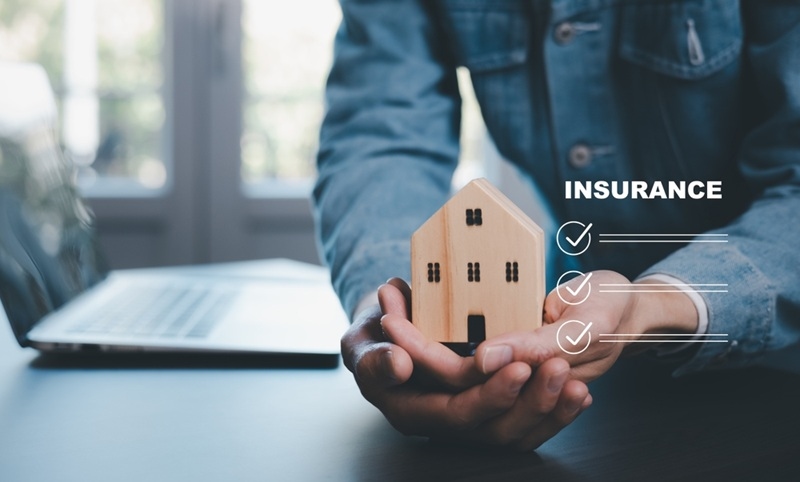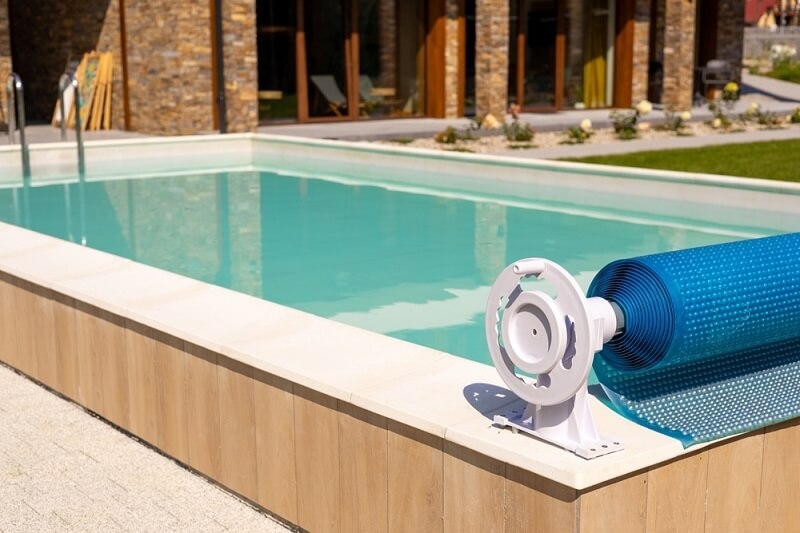5 Reasons Why You Should Get Home Insurance Right Away
5 Reasons Why You Should Get Home Insurance Right Away


As the adage goes, home is where your heart is. Your home can be your sanctuary from the world and a place you can retreat to whenever you need some time alone, so it stands to reason that most of us put a lot of value on our homes. However, this doesn't mean we're always prepared for anything that could go wrong with them. Many potential threats could make your house fall victim to something terrible and end up irreparably damaged. If this happens, the financial implications can be pretty devastating. Unless you get home insurance first, of course.
This article discusses the top 5 reasons why you should get home insurance if you own a house:
1. Being insured prepares you to face any disaster
The most obvious reason to get home insurance is that it can protect you in the case of a disaster. There are many different causes of disasters that can affect your house. If there's a flood in your area, water damage can occur quickly and be extremely expensive to repair. Fire can also be very costly to remediate and cause a lot of structural damage that needs to be fixed. And, of course, if there's a hurricane or other natural disaster in your area, you'll probably want to get home insurance immediately. It can help you get back on your feet after a disaster if you're insured—but if you're not, it can be tough to recover financially.
2. Home repair is usually costly
Another reason to get home insurance is that home repair is usually very expensive. In fact, the cost of repairing a home can be so high that many people decide to just tear down and rebuild the damaged part instead. This is often the better option, but it's something you have to plan ahead for.
You may have home insurance that allows you to rebuild your house. Still, suppose you don't get the process started soon enough. In that case, you won't have enough money to rebuild it before your insurance coverage runs out. If you don't have any home insurance and your house is damaged, you have to cover the costs of repairing it out of your pocket. In many cases, this can be very difficult—especially for an older homeowner who may not have enough money saved up for such repairs.
3. Cost of staying in a hotel during home repair
Even though it's highly improbable that you'll need to relocate temporarily, having this insurance will be the most acceptable investment you've ever made. You can get your money back for rent, hotel stays, and restaurant meals with the help of your insurance's "extra living expenses" provision while you wait for your house to be repaired.
But before you book that Ritz-Carlton suite and load up on caviar from room service, know that there are stringent daily and total restrictions imposed by hotel policy. Of course, if you are prepared to pay extra for insurance, you may raise the limitations each day you are covered.
4. Your home is a significant investment
Your house is a significant investment, and you need to protect it just like you would a stock or any other part of your portfolio. If your home is damaged, recouping that money could be very difficult. If you get home insurance, you can be reimbursed for the damage and keep your investment safe. If you don't get home insurance and your house is damaged, you may have to sell it and move to a different house. This can be a complicated process and take a lot of time—it probably won't be cheap either.
5. Replacement cost insurance can help rebuild your house
Another good reason to get home insurance is that replacement cost insurance can help rebuild your house. If there is damage to your house, and you have replacement cost insurance, you will be paid an amount equal to the whole cost of rebuilding it. This implies that you may recreate it to a T, with the exact specifications and conveniences. Because of this, rebuilding your home and moving on with your life will be considerably less of a hassle.
6. Off-premises coverage
If your house possessions are destroyed in an insured disaster, you will get compensation for your loss. With "off-premises" coverage, you may report a loss (such as jewelry) no matter where you were when it occurred. It's possible, though, that your insurer has a maximum payout they'll make. As reported by the Insurance Information Institute, most insurance providers will cover anywhere from fifty percent (50%) to seventy percent (70%) of your dwelling coverage.
If your home is insured for $200,000, your belongings would be protected up to around $140,000.
Home insurance coverage amount
When determining the size of your house insurance policy, consider the worth of your property first. You may get an assessment of the worth of your property from an expert. If you intend to acquire content insurance, establish a list of all the precious items that, if lost, may cause you financial harm. Examine their values. You must examine the terms and conditions of the insurance policy to see which goods are not covered by claims.
You may insure your house for either cash value or replacement cost. Actual cash value gives you a claim based on the replacement value of the property after depreciation. In contrast, replacement cost gives you a claim based on the item's replacement value.
Reviewing your house insurance
Every year, review your house insurance requirements to ensure that your home is not underinsured despite an increase in its worth. Over time, your need for the type and size of house insurance may fluctuate as your income and the value of your home content alter.
Maintain correct information
Do not withhold any critical information from the insurance company. For example, when providing building specifications, you should include the structure's precise size, height, map, location, and floor plan. If you supply content specifics, you should specify the precise number, weight/size, and so on, and have the bills on hand as proof. You may also purchase various add-ons based on your needs and the cost of your house insurance.
Keep your house safe
* One type of house insurance covers the loss of a property's contents.
* The second type covers losses caused by structural damage to the property.
* Purchasing house insurance is not required when taking out a home loan.
* You may cover your house for either cash value or replacement cost.
What does home insurance not cover?
While natural catastrophes and other "acts of God" and acts of war usually are not covered by homeowners' insurance, the vast majority of potential loss situations are.
Well, what if you happen to reside in a region prone to hurricanes and floods? Or perhaps a region notorious for earthquakes? Earthquake and flood insurance are examples of the need for riders or a separate policy. Optional coverages include sewage and drain backup and identity recovery after identity theft.
Conclusion
Most people's life-changing financial commitment is a home purchase. This mammoth undertaking calls for extensive preparation, financial forethought, and study. However, because home ownership is possible even without home insurance, we tend to overlook the notion of home insurance altogether. Our general consensus is that it's a bad idea since it involves putting money into something with no guarantee of return. However, as natural disasters are becoming more frequent, it is prudent to incur some more money to protect against potential major financial setbacks.
This content was created by AI



